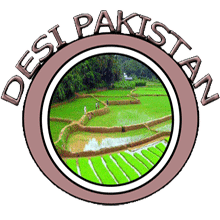Political History
1. 1947-1971
2. 1972- to the Present
First Part:
1947-1971
- 1947-58
- 1958-69
- 1969-71
1: First Eleven Years (1947-58)
Pakistan won independence under extremely difficult conditions. The next task was setting up of a new state.
There was no administrative structure. Riots, refugee’s problem and economic pressures were challenging for the new state.
Negative attitude from Indian government and war on Kashmir created problems in relations with India.
The Government of India Act 1935 was adopted as the first Interim Constitution. Quaid-i-Azam Mohammad Ali Jinnah became the first Governor General (GG) of Pakistan and Liaquat Ali Khan, the first Prime Minister (PM).
Governor Generals:
1. M. A. Jinnah August Sept. 1947-Sept. 1948
2. Kh. Nazimuddin Sept. 1948-Oct 1951
3. Ghulam Mohammad Oct. 1951-Oct. 1955
4. Iskander Mirza Oct. 1955-March 1956
President:
1. Iskander Mirza March 1956-Oct. 1958
Prime Ministers:
1. Liaquat Ali Khan August 1947-Oct 1951
2. Kh. Nazimuddin Oct. 1951-April 1953
3. Muhammad Ali Bogra (i) April 1953-Oct 1954 Oct. (ii) 1954-August 1955
4. Ch. Muhammad Ali August 1955-Sept 1956
5. H.S. Suhrawardy Sept. 1956-Oct 1957
6. I.I. Chundrigar Oct. 1957-Dec 1957
7. Firoz Khan Noon Dec. 1957-Oct. 1958
Major Issues
• Constitution-making
• Elections at the provincial level
1. Punjab, NWFP 1951
2. Sindh 1953
3. East Bengal 1954
• 1st Constituent Assembly (CA) was dissolved and 2nd CA was constituted in 1955.
• One Unit Scheme October 1955
• Economic management, Agriculture, Industrialization and Education was a question dealt in 1st Five Year Plan.
• Political Instability was there. Weak and short-lived governments shattered the whole political system.
• Decline of Political Parties created bad name for politicians.
• Instability was also there at the provincial level.
2: Second Phase (1958-69)
Martial Law remained imposed from October 1958 to June 1962. Constitutional Rule was restored on June 1962 and remained till the 2nd Martial Law on March 1969.
Ayub Khan took over as Chief Martial Law Administrator (CMLA) and the President. He got himself elected through referendum in 1960 and re-elected in January 1965 through presidential elections.
Important Policy Measures
Important Policy Measures taken by the Ayub government were:
Administrative Reforms which included removal of unwanted officials, some 1662 in number.
Restrictions on political activities. Political leaders were stopped from taking part in politics for 6 years on the charge of corruption and other charges under the law named EBDO.
Economic planning was done for industrial development and green Revolution. Educational Reforms
Constitution was introduced.
Downfall of Ayub Khan:
Indo-Pakistan war started and at the end of war Tashkand Pact was signed with India. People were not satisfied with this pact. They also resented the election results of 1965. Fruits of economic development were not distributed at masses level. Wealth of nation was concentrated in a few hands. This brought people to agitation and public demand resulted in resignation of the president.
3: Third Phase (1969-71)
Ayub Khan handed over power to Army Chief Yahya Khan. He imposed Martial Law and 1962
Constitution was abrogated. He took some immediate steps:
• Removal of officers 303
• Provinces Revived: March 30, 1970
• Abolition of Parity
• Legal Framework Order (LFO) as interim law issued in March 1970 which provided basic principles for:
• Constitution making
• Rules and regulations for elections
• Seats in the assemblies
• National Assembly 313 (300 plus 13 women seats) For East Pak 162 plus 7 West Pak 138 plus 6
General Elections
General Elections were held in December 1970.
Election Results were:
Awami League 160 general seatsTransfer of power became a major problem. Failure of dialogue for transfer of Power among three top leaders led to confrontation and military action on March 25, 1971. It ultimately resulted in Civil war and alienation of East Pakistan.
Pakistan People’s Party 81 general seats
India played a very negative role. It attacked on East Pakistan and India-Pakistan war started which ended with the separation of East Pakistan.



Post A Comment:
0 comments: